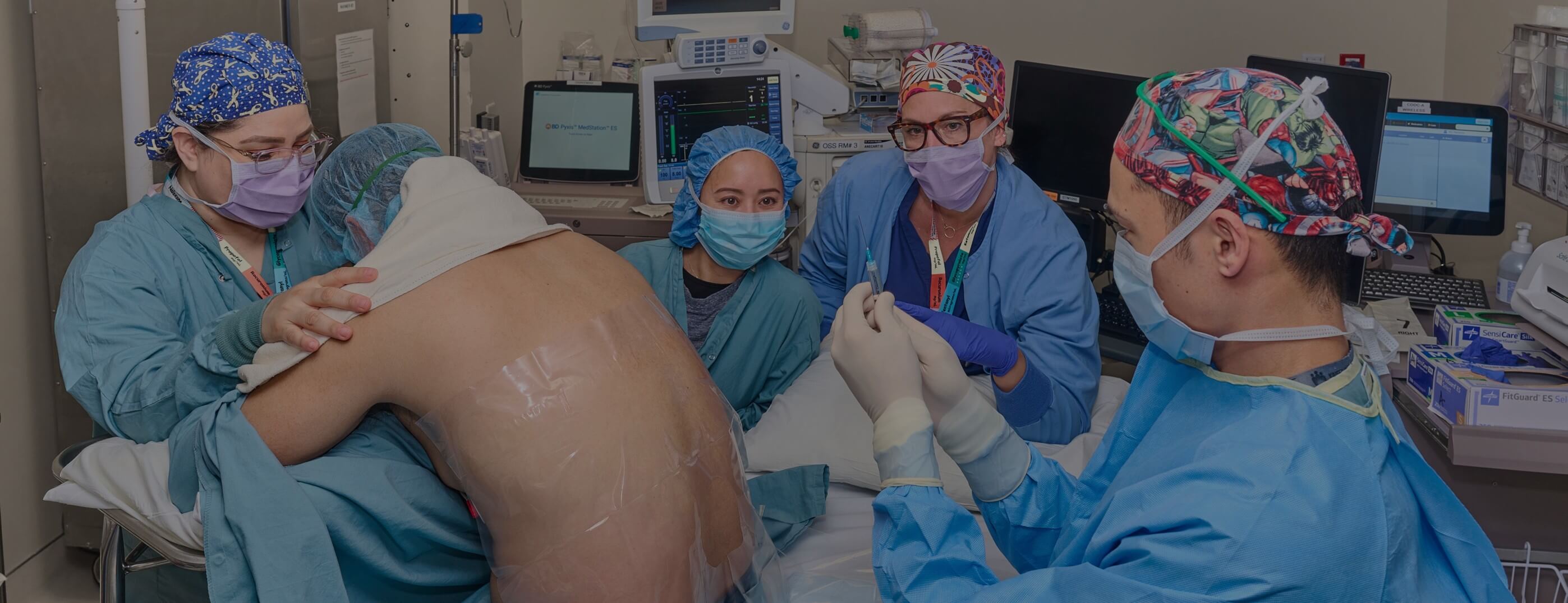About
The demand for credentialed professionals in anesthesia technology is at an all-time high. To address this critical need, the American Society of Anesthesia Technologists and Technicians (ASATT), in partnership with the Kaiser Permanente School of Anesthesia (KPSA), has developed the Practical Experience Pathway (PEP). This program offers a route for experienced but uncertified anesthesia technicians to qualify for the National Certification Exam (NCE) and pursue the Certified Anesthesia Technologist (Cer. ATT) credential.
Please note:
- The PEP is NOT a continuing education program for currently certified anesthesia technologists/technicians.
- ASATT only accepts anesthesia technician experience from the United States.
Verify Your Eligibility
Before enrolling in the KPSA PEP curriculum, you must personally confirm your eligibility based on ASATT’s criteria. No refunds will be issued once enrolled, regardless of eligibility status.
Click here to review ASATT eligibility guidelines.
Note: KPSA does NOT determine or verify participant eligibility for the PEP. Additionally, KPSA makes no guarantees regarding success on the NCE exam. Preparation and outcomes are solely the responsibility of the participant.
Curriculum
The KPSA PEP curriculum includes 46 CE units and is delivered entirely online. Courses are accessible from any location with internet access.
The curriculum is divided into four comprehensive courses:
Course 1: Basics of Anesthesia Technology (14 CE Units)
- Professional Aspects, Ethics & Safety (2.5 CE): Includes Joint Commission standards, regulatory compliance, OR fire safety, and scope of practice.
- Anatomy & Physiology Review (2 CE)
- Electrical Safety & Systems (0.5 CE)
- Anesthesia Gas Machine (5 CE): Covers system principles, flow/volume/pressure mechanics, vaporizers, safety features, CO₂ removal, calibration, and troubleshooting.
- Non-Invasive & Basic Monitoring (1 CE): Arterial line, CVP, PA catheter overview.
- IV Therapy (0.5 CE): Insertion techniques and equipment.
- Basic & Emergency Airway Management (1 CE): Techniques, endotracheal tubes, blades, and equipment.
- Malignant Hyperthermia (MH) (1.5 CE): MH cart, pharmacology (Dantrolene, Mannitol, Lasix), and management protocols.
Course 2: Special Surgical Populations (15 CE Units)
- Pediatric Anesthesia (2 CE): Pediatric airway, IV setup, and common surgical considerations.
- Trauma Anesthesia (2 CE): GSWs, MVAs, burns, emergency procedures, and massive transfusion protocols.
- Cardiac Anesthesia (5 CE): TEE, cardiovascular surgeries (CABG, AVR, TVAR, TMAR), pathophysiology, and ECG rhythm interpretation.
- Transplant, OB & Regional Anesthesia (6 CE): OB hemorrhage, organ failure, transplant considerations, obesity, geriatrics, and neuroanesthesia.
Course 3: Pharmacology (8 CE Units)
- Units of Measure and Terminology (0.5 CE)
- Inhalational Agents (1 CE)
- Neuromuscular Blocking Agents (1 CE)
- Sedatives and Hypnotics (1 CE)
- Opioids (1 CE)
- IV Therapy (Theory and Blood Products) (1 CE)
- Emergency Medications (Vasopressors, Cardiac Drugs) (2 CE)
- Ancillary Medications (0.5 CE)
Course 4: Advanced Principles of Anesthesia Technology (9 CE Units)
- Advanced Instrumentation & Concepts (2.5 CE): One-lung ventilation, TEG, POC testing, ABG analysis.
- Ultrasonography (1 CE): TEE, regional ultrasound techniques.
- Cell Salvage (Autotransfusion) (2 CE): Indications, contraindications, and equipment use.
- Intra-Aortic Balloon Pump (1 CE): Concepts, setup, and considerations.
- Regional Anesthesia (1 CE): Local anesthetics, LAST, spinal, epidural, and peripheral nerve blocks with ultrasound guidance.
- ACLS (1.5 CE): Dysrhythmias and emergency algorithms.
Curriculum Completion Timeline & Costs
Participants have 1 year to complete the 46 CE units. A one-time 6-month extension is available for an additional fee.
Tuition Fees:
- $1050.00 via check (access granted once cleared)
- $1082.00 via credit or debit card (access typically granted within 2 business days)
Extension Fees (If needed):
- $500.00 via check
- $515.00 via card
Assessment & Certification
- Each CE activity includes scored quizzes with multiple opportunities to pass the quiz.
- A minimum passing score of 80% is required for all assessments to ensure content retention and active participation.
- No partial CE credit is granted - entire courses must be completed for credit.
Upon successful completion of all course requirements, participants will receive a Certificate of Completion via email. This certificate must be submitted by the participant to ASATT's PEP portal to become eligible for the NCE.
Next Steps
Thank you for enrolling in the KPAT Practical Experience Pathway!
To ensure timely access to the course curriculum, please complete the following steps.
STEP 1: Submit Your Payment
To pay via credit or debit card, submit your payment through our payment portal.
To pay via check, make your check payable to Kaiser Permanente Anesthesia Technology Program and include your full name and "Practical Experience Pathway" on the memo line of the check. Please note that the name on the check MUST match the registration name of the PEP participant.
Mail all checks to:
Kaiser Permanente School of Anesthesia
c/o Sandra Snow-Hinkson
100 S Los Robles Ave #501
Pasadena, CA 91101
Absolutely no refunds will be issued for any reason.
STEP 2: Sign Up for a Teachable Account
Visit KPAT on Teachable to sign up for a free account with the same name and email address that you used to enroll in the program.
STEP 3: Wait for Your Welcome Email
Within 2 business days after your payment has cleared, you will receive a welcome email and be granted access to the program on Teachable.
Need Help?
Email us at [email protected]
